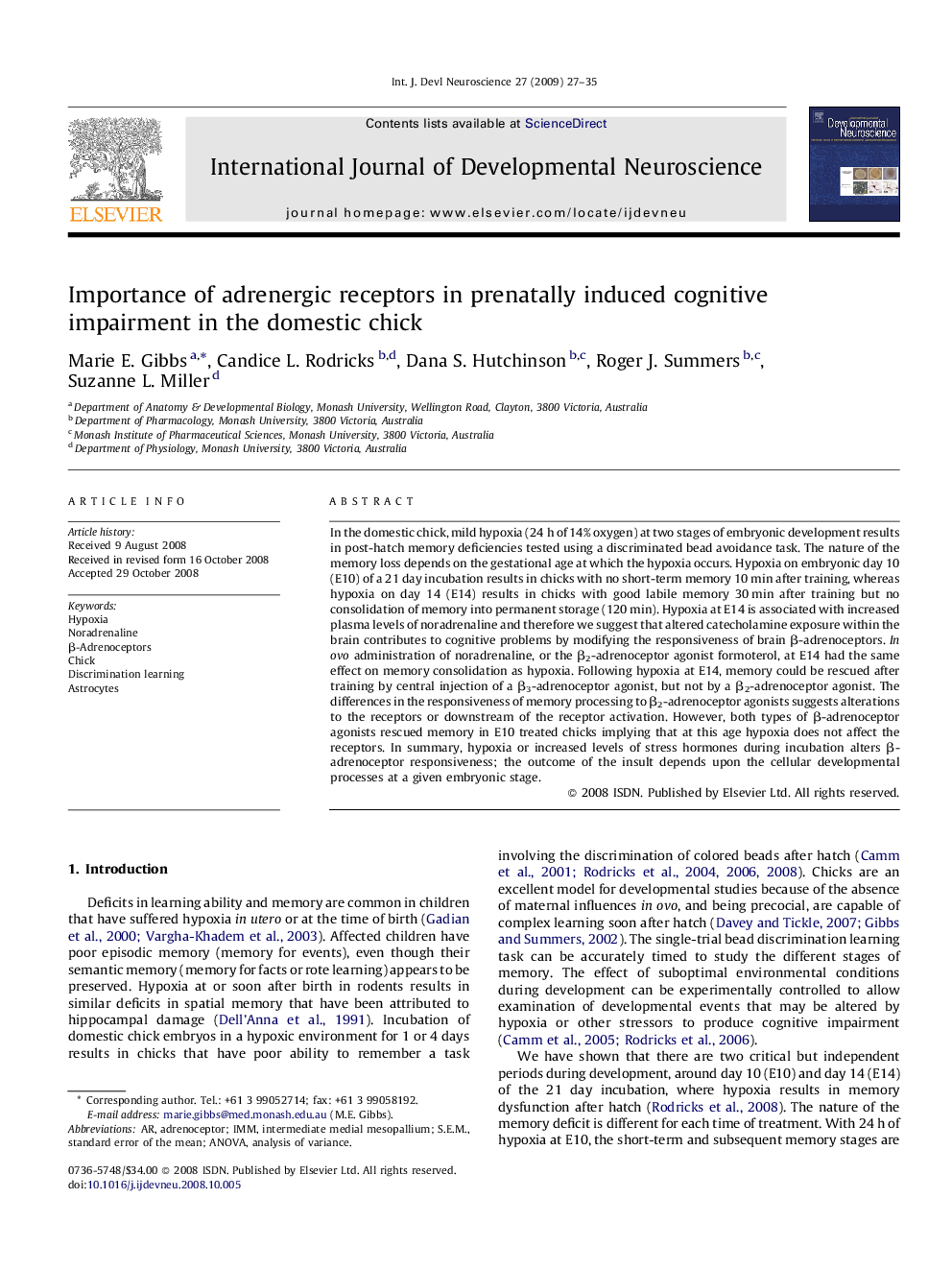| Article ID | Journal | Published Year | Pages | File Type |
|---|---|---|---|---|
| 2787008 | International Journal of Developmental Neuroscience | 2009 | 9 Pages |
In the domestic chick, mild hypoxia (24 h of 14% oxygen) at two stages of embryonic development results in post-hatch memory deficiencies tested using a discriminated bead avoidance task. The nature of the memory loss depends on the gestational age at which the hypoxia occurs. Hypoxia on embryonic day 10 (E10) of a 21 day incubation results in chicks with no short-term memory 10 min after training, whereas hypoxia on day 14 (E14) results in chicks with good labile memory 30 min after training but no consolidation of memory into permanent storage (120 min). Hypoxia at E14 is associated with increased plasma levels of noradrenaline and therefore we suggest that altered catecholamine exposure within the brain contributes to cognitive problems by modifying the responsiveness of brain β-adrenoceptors. In ovo administration of noradrenaline, or the β2-adrenoceptor agonist formoterol, at E14 had the same effect on memory consolidation as hypoxia. Following hypoxia at E14, memory could be rescued after training by central injection of a β3-adrenoceptor agonist, but not by a β2-adrenoceptor agonist. The differences in the responsiveness of memory processing to β2-adrenoceptor agonists suggests alterations to the receptors or downstream of the receptor activation. However, both types of β-adrenoceptor agonists rescued memory in E10 treated chicks implying that at this age hypoxia does not affect the receptors. In summary, hypoxia or increased levels of stress hormones during incubation alters β-adrenoceptor responsiveness; the outcome of the insult depends upon the cellular developmental processes at a given embryonic stage.
